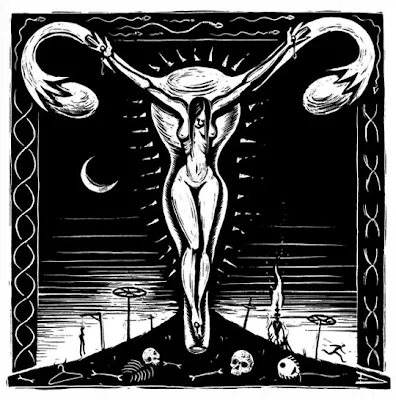
DEGAS- Musicians in the Orchestra
Heads together, pulling
upon music's tide-
it is not their ears
but their eyes their conductor
has sealed, lest they behold
on the stage's shore
the skirts' rising and falling
that turns men to swine.

RENOIR- Muslim Festival at Algiers
People: their combs and wattles
rampant upon a background
of dung. The dancers silently
crackling on an unquenced hearth.
A mosque, a tower as deputies
in the clouds' absence; and gazind,
as at a window, the detached
ocean with its ceruean stare

MONET- Roen Cathedral, Full Sunshine
But deep inside
are the chipped figures
with their budgerigar faces,
a sort of divine
humour in collusion
with time.Who but
God can improve
by distortion?
There is
a stonre twittering in
the cathedral branches,
the excitement of migrants
newly arrived from a tremendous
presence.
We have no food
for them but our
prayers.Kneeling we drop our
crumbs, apologising
for their dryness, afraid
to look up in the ensuing
silence in case they have flown.

GAUGHIN- Breton village in the Snow
This is the village
to which the lost traveller
came,searching for his first spring,
and found, lying asleep
in the young snow, how cold
was its blossom.
The trees
are of iron, but nothing
is forged on them. The tower
is a finger pointing
up, but at whom?
If prayers
are said here, they are
for a hand to roll
back this white quilt
and uncover the bed
where the earth is asleep,
too, but neare awaking.

DEGAS- Absinthe
She didn't want to go;
she couldn't resist.
It was an opportuity
to be like other women,
to sit at an inn table,
not drinking,but repenting
for having drunk of a liquid
that made such promises
as it could not fulfill.
Her clothes are out of the top
drawer, the best her class
could provide.The presence
of the swarthier ruffian
beside her guarantees
that she put them on in order
to have something good she could take off.

ROUSSEAU- The Snake Charmer
A bird not of this
planet;serpents earlier
than their venom;plants
reduplicating the moon's
paleness. An anonymous
minstrel, threatening us
from under macabre
boughs with the innocence
of his music. The dark
listens to him and withholds
till to-morrow the boneless
progeny to be brought to birth

RENOIR- The Bathers
What do they say?
Here is flesh
not to be peeped
at.No Godivas
these.Thet remain
not pass, naked
for us to gaze
our fill on,but
without lust
This
is the mind's feast,
where taste follows
participation. Values
are in reverse
here.Such soft tones
are for the eye
only.These bodies
smooth as bells
from art's stroking, toll
an unheard music,
keep such firmness
of line as never,
under the lapping
of all this light
to become blurred or dim.


















